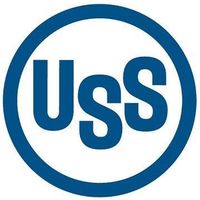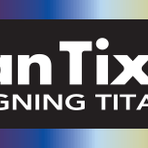Nippon Steel's Gamble: A New Chapter in U.S.-Japan Relations?
January 17, 2025, 3:58 am

Location: United States, Pennsylvania, Pittsburgh
Employees: 10001+
Founded date: 1901
Total raised: $240M
Nippon Steel is poised at a crossroads. The Japanese steel giant is eager to collaborate with the incoming Trump administration to secure a $14.9 billion takeover of U.S. Steel. This deal has become a battleground, with Nippon Steel and U.S. Steel recently filing lawsuits against President Biden. The stakes are high, and the implications ripple through both nations.
The backdrop is a familiar one. The steel industry is a cornerstone of American manufacturing. It’s a symbol of strength, resilience, and national pride. Yet, the landscape is shifting. Nippon Steel's ambitions clash with the Biden administration's protective stance. The president's decision to block the acquisition was rooted in concerns over national security. But Nippon Steel argues otherwise. They see themselves as allies, not adversaries.
Takahiro Mori, Nippon Steel's vice chairman, has made it clear: they are not backing down. The company believes it has a solid case. They argue that the U.S. and Japan share a long history of partnership. This isn’t just about steel; it’s about trust. Major companies from allied nations want to invest in the U.S. They want to create jobs and bolster the economy. But they also want assurance that they won’t be treated as mere political pawns.
The lawsuits filed by Nippon Steel and U.S. Steel are a bold move. They claim that Biden's actions deprived them of due process. The companies are seeking a legal pathway to move forward. The clock is ticking. Biden's order to unwind the transaction gives them a 30-day window, but that has been postponed until June. This delay offers a glimmer of hope for Nippon Steel.
As the Trump administration prepares to take office, the landscape could change dramatically. Trump has a history of favoring American industry. His administration may view the deal through a different lens. Nippon Steel is ready to engage. They want to explore partnerships that benefit American workers and the economy. It’s a dance of diplomacy, where each step could lead to a new alliance or a deeper divide.
Cleveland-Cliffs, another player in the steel industry, is also eyeing U.S. Steel. They previously made a bid that was rejected. Now, they are teaming up with Nucor to prepare a potential all-cash offer. The competition is heating up. U.S. Steel is at the center of a tug-of-war, with multiple suitors vying for its attention.
The implications of this deal extend beyond corporate interests. It touches on national security, economic stability, and international relations. The steel industry is a vital part of the U.S. economy. Any foreign investment raises questions about control and sovereignty. Yet, Nippon Steel insists that their intentions are pure. They want to invest, grow, and create jobs. They see themselves as partners in progress.
Mori's comments reflect a broader sentiment among foreign investors. They are looking for clarity and consistency in U.S. policy. The unpredictability of political decisions can deter investment. Companies want to know if they will be welcomed or resisted. The stakes are high, and the answers are not always clear.
As the Trump administration prepares to take the reins, the world watches closely. Will they embrace foreign investment, or will they adopt a more protectionist stance? The outcome of this saga could set a precedent for future foreign investments in the U.S. The balance between national security and economic growth is delicate.
Nippon Steel's pursuit of U.S. Steel is more than a business deal. It’s a test of international relations. It’s a reflection of how countries navigate the complexities of globalization. The steel industry is a microcosm of larger economic forces at play. The decisions made in the coming months will resonate far beyond the boardrooms.
In the end, it’s about more than steel. It’s about forging connections. It’s about building a future where allies can collaborate for mutual benefit. Nippon Steel is ready to play its part. The question remains: will the U.S. be ready to embrace this partnership? The answer could shape the future of U.S.-Japan relations for years to come.
As the legal battles unfold and the political landscape shifts, one thing is certain: the world of steel is watching. The outcome of this deal could redefine the rules of engagement in international business. It’s a high-stakes game, and both sides are determined to win. The next chapter in this saga is just beginning.
The backdrop is a familiar one. The steel industry is a cornerstone of American manufacturing. It’s a symbol of strength, resilience, and national pride. Yet, the landscape is shifting. Nippon Steel's ambitions clash with the Biden administration's protective stance. The president's decision to block the acquisition was rooted in concerns over national security. But Nippon Steel argues otherwise. They see themselves as allies, not adversaries.
Takahiro Mori, Nippon Steel's vice chairman, has made it clear: they are not backing down. The company believes it has a solid case. They argue that the U.S. and Japan share a long history of partnership. This isn’t just about steel; it’s about trust. Major companies from allied nations want to invest in the U.S. They want to create jobs and bolster the economy. But they also want assurance that they won’t be treated as mere political pawns.
The lawsuits filed by Nippon Steel and U.S. Steel are a bold move. They claim that Biden's actions deprived them of due process. The companies are seeking a legal pathway to move forward. The clock is ticking. Biden's order to unwind the transaction gives them a 30-day window, but that has been postponed until June. This delay offers a glimmer of hope for Nippon Steel.
As the Trump administration prepares to take office, the landscape could change dramatically. Trump has a history of favoring American industry. His administration may view the deal through a different lens. Nippon Steel is ready to engage. They want to explore partnerships that benefit American workers and the economy. It’s a dance of diplomacy, where each step could lead to a new alliance or a deeper divide.
Cleveland-Cliffs, another player in the steel industry, is also eyeing U.S. Steel. They previously made a bid that was rejected. Now, they are teaming up with Nucor to prepare a potential all-cash offer. The competition is heating up. U.S. Steel is at the center of a tug-of-war, with multiple suitors vying for its attention.
The implications of this deal extend beyond corporate interests. It touches on national security, economic stability, and international relations. The steel industry is a vital part of the U.S. economy. Any foreign investment raises questions about control and sovereignty. Yet, Nippon Steel insists that their intentions are pure. They want to invest, grow, and create jobs. They see themselves as partners in progress.
Mori's comments reflect a broader sentiment among foreign investors. They are looking for clarity and consistency in U.S. policy. The unpredictability of political decisions can deter investment. Companies want to know if they will be welcomed or resisted. The stakes are high, and the answers are not always clear.
As the Trump administration prepares to take the reins, the world watches closely. Will they embrace foreign investment, or will they adopt a more protectionist stance? The outcome of this saga could set a precedent for future foreign investments in the U.S. The balance between national security and economic growth is delicate.
Nippon Steel's pursuit of U.S. Steel is more than a business deal. It’s a test of international relations. It’s a reflection of how countries navigate the complexities of globalization. The steel industry is a microcosm of larger economic forces at play. The decisions made in the coming months will resonate far beyond the boardrooms.
In the end, it’s about more than steel. It’s about forging connections. It’s about building a future where allies can collaborate for mutual benefit. Nippon Steel is ready to play its part. The question remains: will the U.S. be ready to embrace this partnership? The answer could shape the future of U.S.-Japan relations for years to come.
As the legal battles unfold and the political landscape shifts, one thing is certain: the world of steel is watching. The outcome of this deal could redefine the rules of engagement in international business. It’s a high-stakes game, and both sides are determined to win. The next chapter in this saga is just beginning.
